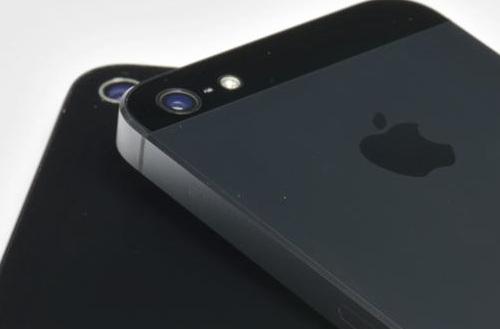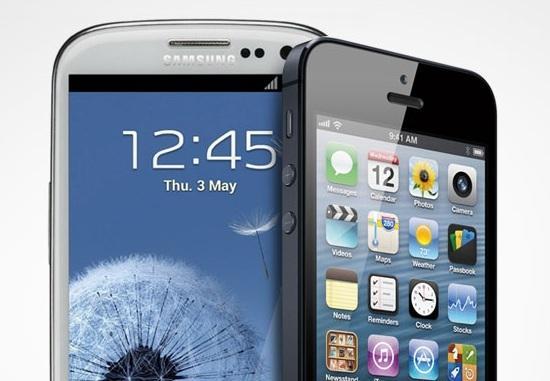
Last year, right around this time, I was starting to get excited about what Apple had coming down the pipe. Last year, around this time, I would have told you that I thought Apple was gearing up to surprise the world with a brand new version of their mobile operating system, iOS, along with a new iPhone design. Unfortunately we only got one of those things. While it's great that the iPhone 5 introduced the world to an iPhone with a larger display, I think it would have been a better showcase had they also been showing off how a brand new version of iOS worked on that larger screen.
Last year, I was hoping that the Cupertino-based company would shock everyone, just like they had done in 2007 with the initial launch of the iPhone. Because it's long overdue. Even last year. And now, especially this year. In 2013, everything is moving forward at a nice, steady pace, to the point where many people will probably not be all that shocked or surprised by what phone manufacturers unveil.
Apple should capitalize on this. Will they? It's anyone's guess, and honestly I'm keeping my expectations in check this time around. As much as I'd love to say that I know, somewhere deep down in my gut, that Apple is gearing up to unveil a few different iPhones, along with a newly designed iOS, I just can't get myself one hundred percent behind it.
Not yet, anyway. Hopefully that changes soon.
In the last week, there's been a lot of renewed energy talking about how Apple is slipping behind. Our very own Anna Scantlin wrote a piece on commentary provided by Steve Wozniak, former Apple co-founder, and how he views the iPhone. There were plenty of noteworthy takeaways, but the biggest focused on Apple's smartphone features, and how they are "somewhat behind" the competition.
Somewhat behind.
I'm not sure I'd necessarily say that this is a middle-of-the-road statement, but based on comments I've seen related to Anna's article, along with other articles on the topic across the Internet, a lot of people think it's pretty damning. "Somewhat behind" apparently translates to meaning Apple is slipping from its perch at the top of the smartphone race, and seceding its rank to the competition.
I find this very interesting, because I can imagine that deep within Apple headquarters, there are people having this conversation in earnest, and in detail. Talking about how they can compete with manufacturers like Samsung, and slow down the stampede that is individual handsets within the Android army. Hardware is just part of the story. Software has to take the main stage, though. Apple has to show that they've got what it takes to revolutionize their software, offer new and exciting features, and steal some of the limelight from Samsung's ever-increasing presence on the global stage.
Is iOS boring? I can't answer that question for you, because I have no idea what you're looking for in a smartphone. For me, personally, I can tell you that I used to hide behind the whole, "But it works!" argument, and just point out that I don't need a lot of flashy features to make me happy from day-to-day. Unfortunately, I can't do that anymore.
Last night I went out to dinner, and sat with friends who all had iPhones. They were all talking about things like Instagram, and a few other non-exclusive applications on their phones. Out of six people, only two of them had iPhone 5s, while the others had the iPhone 4S. Other than my phone (an iPhone 5), they all had large protective cases on them.

You couldn't tell a difference from any of them, and as I watched them stack the phones in the middle of the table (for some game), I realized that I absolutely wanted another phone. I also realized that I couldn't hide behind that "working" argument anymore, especially not after using devices like Samsung's Galaxy Note II, or HTC's Windows Phone 8X.
Those phones, their software and apps, work just fine. The DROID DNA works. The Galaxy S III works. The Lumia 920? Yep, it works, too. Even BlackBerry's BlackBerry Z10 seems to work just fine, even if it has a few quirks here and there. (Which means it will probably work even better by the time it launches here in the United States.)
But, what about apps? Yes, I will admit that one mobile platform or another might be hindered slightly against the competition, like Apple and Google, because it doesn't have all the apps some people want or require. But, if we're just looking at the phones, out of the box, not worrying about third-party apps we can download from a digital store, the conclusion is pretty straightforward: they work.
Apple's iPhone may "just work," but you know what? It's no longer the only phone that does and that matters a great deal, I think. Just as Wozniak suggested, Apple has fallen "somewhat behind," and I believe that this might be what he was talking about, in part. Falling somewhat behind, to me, suggests that Apple is no longer capitalizing on features that may not work on other platforms, or even just making features better. The iPhone 5 and iOS 6 simply exist, while Samsung's Galaxy Note II is giving you several real reasons why you should use a phone with a 5.5-inch display, and love every moment of it.
When the iPhone launched, it was one-of-a-kind. No, it wasn't the first smartphone. No, it wasn't the first device with a touchscreen. But it made those things better. The iPhone made mobile gaming better, and applications have literally taken over some parts of the conversation courtesy of Apple's App Store.

No one can deny that Apple made the smartphone race fire into overdrive. But it would seem that everything is eventual, and Apple's "it just works" argument has come to an end. With the launch of Windows Phone and Android 4.0 and above, we can safely say that iOS isn't the only stable operating system on the market. You don't need to be afraid to pick up a device with Microsoft's mobile operating system. You don't need to think that your Android device will force close on you every fifteen minutes. Our mobile operating system options have aged well, and learned from their mistakes.
Can Apple change that in 2013? We'll have to wait and see. Maybe we'll see the company's iPad lineup start to show some actual tablet features, for example. But until Apple can start to capitalize on the ideas that made them so popular in the smartphone market in the first place, I think it's a safe bet that other alternatives are going to look just as promising, if not even more so.
Do you think Apple is its own biggest obstacle in 2013? Can they overcome whatever it is that has begun to weigh them down? Or do you think companies like HTC and Samsung will just fill the gaps, whether it be with Android or Windows Phone, and Apple will continue to see attention brought towards other devices? Let me know what you think.